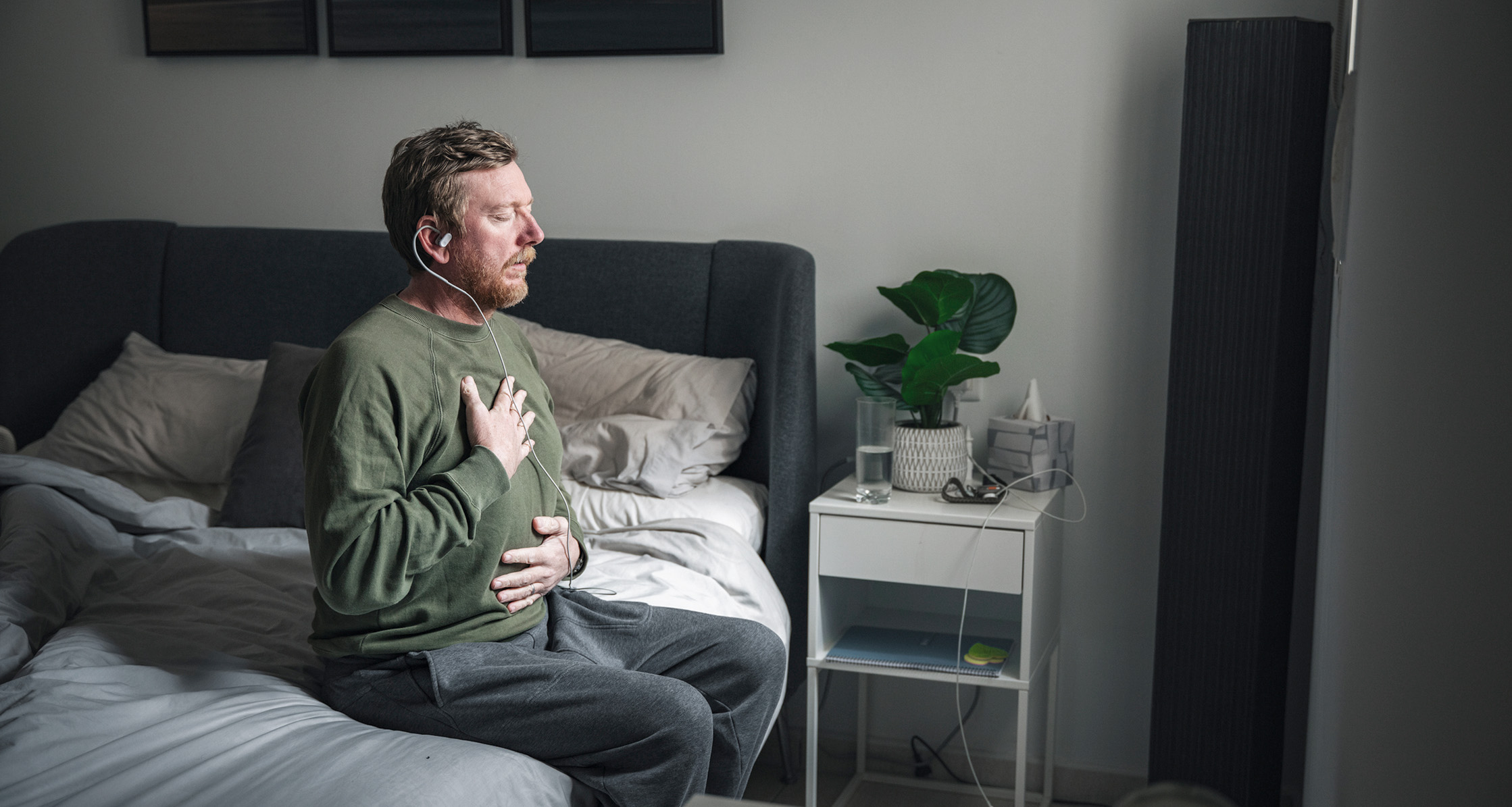Keeping informed about studies and research on treatments like vagus nerve stimulation is an important way to remain an active participant in your health and health care.
Our bodies are a complicated web of systems that work closely together to keep us healthy. Most of us have probably never heard of our vagus nerve, but it’s a part of our nervous system and plays an important role in our body’s daily functions.
The vagus nerve is being examined more closely for its potential role in treating conditions that many Veterans find themselves managing, such as post-traumatic stress disorder (PTSD), chronic pain, and more.
Learn more about your vagus nerve, a treatment called vagus nerve stimulation, and what conditions it’s being used to treat.
What Is Your Vagus Nerve?
According to Cleveland Clinic, your vagus nerve or nerves are part of your body’s nervous system. There is one vagus nerve on each side of your body. They start at your brainstem, pass through your neck to your chest and abdomen, and go to your large intestine.
Your vagus nerves play an important role in certain body functions, such as digestion, heart rate, immune system responses, mood, and more. They send electrical signals between your brain and different parts of your neck, head, and torso.
What Is Vagus Nerve Stimulation?
Vagus nerve stimulation is a treatment in which a pulse generator, similar to a pacemaker, is implanted below the skin in your chest. The pulse generator stimulates your vagus nerve and sends electric impulses through the vagus nerve to the brain, where it’s dispersed to different areas to alter the activity and excitability of your nerves.
The pulse generator is programmed by your health care provider and is controlled by a computer. The device sends mild, regular pulses of electric energy to your vagus nerve at a certain frequency for a certain length of time.
Patients are usually unaware when the device is on, but they may feel an occasional tickling sensation in the throat or neck. In addition, some patients notice their voice becomes hoarse or they have a mild cough during stimulation.
An external device can also be worn for vagus nerve stimulation, but it can’t match the frequencies and voltages used in an implanted device because the electrical signals have to pass through your skin and neck muscles.
What Conditions Can Vagus Nerve Stimulation Treat?
The U.S. Food and Drug Administration (FDA) has approved vagus nerve stimulation to treat epilepsy and major depressive disorder, as well as an aid to use during stroke rehabilitation. Currently, it’s a treatment option you and your provider could consider after other traditional treatments haven’t been successful.
- Vagus nerve stimulation is approved as an add-on therapy for epileptic seizures when medication hasn’t controlled them. The treatment’s goal is to reduce the number, length, and severity of seizures.
- Vagus nerve stimulation is approved for adults who have long-term or recurrent major depression that hasn’t responded to antidepressant treatments. For depression, it remains somewhat unclear as to how well the treatment works. An FDA study found that 20-30% of people with depression reported significant improvement, but others either had no improvement or their symptoms worsen.
- Vagus nerve stimulation is approved as an add-on to rehabilitation therapy for people who have moderate to severe loss of arm and hand function due to a stroke. The goal of stroke rehabilitation is to improve limb mobility. In FDA studies, more people saw improvement in their mobility than the people in the control group.
While these are the only FDA-approved uses, vagus nerve stimulation is also being researched for treating several additional health conditions, including:
- Migraines and cluster headaches
- Chronic pain
- Rheumatoid arthritis
- Diabetes
- Inflammatory bowel disease
- PTSD and other mental health conditions like obsessive-compulsive disorder, panic disorder, and schizophrenia
It’s important to note that although it’s being researched for PTSD, the 2023 Department of Veterans Affairs/Department of Defense Clinical Practice Guidelines state that there is insufficient evidence to recommend vagus nerve stimulation to treat PTSD.
If you’re interested in vagus nerve stimulation as a treatment option, talk to your health care provider.
Keeping yourself informed about studies and research on treatments like vagus nerve stimulation is an important way to remain an active participant in your health and health care.







